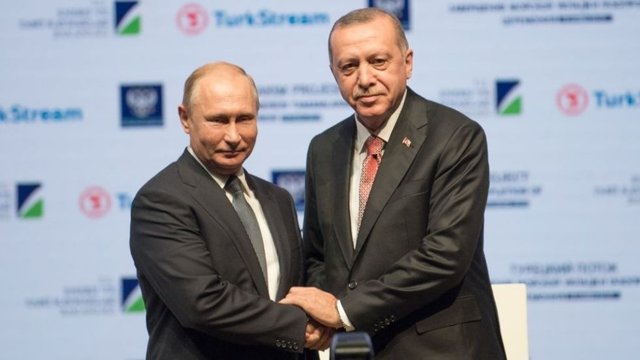In July 2019, the Pentagon kicked Turkey out of the F-35 fighter jet program, ending Turkish factory work on some components of the next-generation fighter jet and canceling Turkey’s multibillion-dollar purchase of several dozen of the planes. The decision, a result of Turkey’s purchase of S-400 anti-aircraft missiles from Russia, exacerbated an already deep crisis of confidence between Ankara and Washington.
U.S. and NATO officials questioned the motives and judgment of Turkish President Recep Tayyip Erdogan. The S-400 was not only a financial boon for NATO’s prime adversary, but the Russian system could track and gather intelligence on the F-35 capabilities and enhance the Russian ability to counter an aircraft the Pentagon planned to rely upon for decades.
Many within the State Department’s unofficial Turkey lobby lamented the erosion in ties. The wound is fresh as Turkey demands either a refund of the money it advanced to purchase the F-35s or approval of its application to modernize F-16s. The problem for the United States is twofold. First, such a deal would not rectify the problems caused by the S-400. Second, the Turks use their F-16s for cross-purposes to regional security — for example, in their constant bombing of returning Yezidi refugees.
It is against this backdrop that anonymous U.S. sources floated the outline of a deal in which Turkey would provide Ukraine with its S-400s and, in exchange, would have prohibitions on its participation in the F-35 program lifted. This might seem like the perfect resolution — it would help the Ukrainians and resolve the chief impediment in U.S.-Turkey ties — but it would be a mistake to pursue.https://6bd354e05cafd00c419d8a8d658645c6.safeframe.googlesyndication.com/safeframe/1-0-38/html/container.html
Erdogan’s S-400 deal is emblematic of a broader problem in Turkey today. Turkey may be a NATO member, but it is not ideologically committed to that for which NATO stands. Rather, it takes a transactional approach, constantly playing Washington and Moscow off each other to win the best deal for Ankara. Fair enough. But, in a time of crisis, NATO members must rise to the challenge, not seek to extort the free world for a short-term enrichment.
Nor is it certain that Erdogan prefers that Ukraine triumph over Russia. Consider Erdogan’s invocation of the 1936 Montreux Convention that governs maritime traffic through the Turkish Straits. Secretary of State Antony Blinken called Erdogan to thank him for denying the straits to Russian warships. As the Foundation for Defense of Democracies’ Aykan Erdemir, a former Turkish lawmaker, pointed out, however, the clauses that Erdogan activated actually deny transit to NATO ships. As for the Russians, there was never any indication that their Mediterranean fleet sought to move into the Black Sea. National security adviser Jake Sullivan and his deputy, Jon Finer, both attended Yale Law School, and Blinken attended Columbia Law, but each completely misread the convention and allowed Erdogan to run circles around them. Meanwhile, Erdogan works to transform Turkey into a giant loophole for sanctions against Russia that will make his multibillion-dollar oil-for-gold dealings with Iran look like chump change.
Any Biden administration deal to return Turkey to the F-35 program will empower Turkey to blackmail America in the future by giving Erdogan the power to betray NATO further. At every opportunity, Erdogan has shown the West should not trust him. For Biden to think he can is the ultimate naivete. To believe a grand bargain is possible is to put not only America’s security at risk but also the entirety of NATO.
By: Michael Rubin (@mrubin1971) – a contributor to the Washington Examiner’s Beltway Confidential. He is a senior fellow at the American Enterprise Institute.
Source: Washington Examiner



